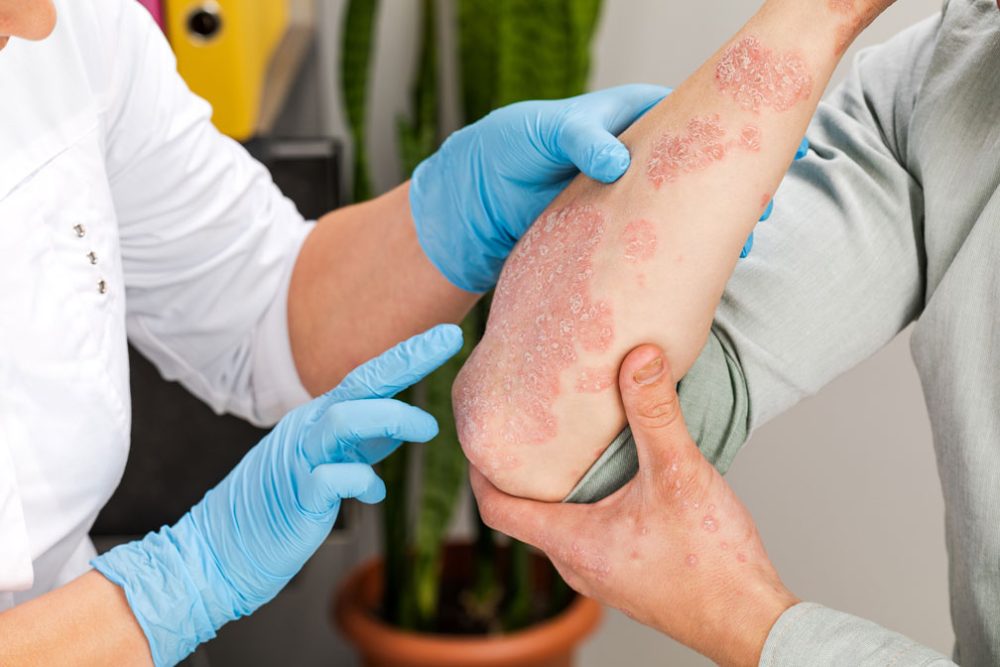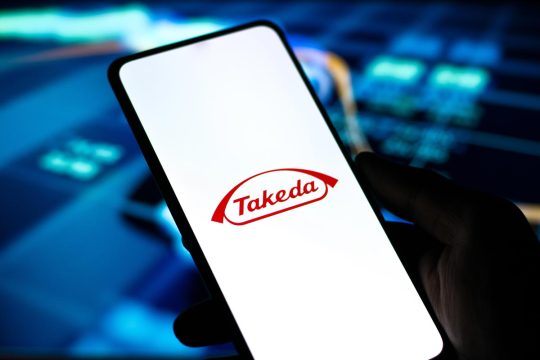Advertisment
Sotyktu (deucravacitinib) long-term data demonstrate durable efficacy and consistent safety for up to three years in moderate-to-severe plaque psoriasis – BMS

Bristol Myers Squibb announced new three-year results from the POETYK PSO long-term extension (LTE) trial of Sotyktu (deucravacitinib) treatment in adult patients with moderate-to-severe plaque psoriasis.
At Week 148, clinical response rates were maintained with continuous treatment with modified nonresponder imputation (mNRI) responses of 73.2% for Psoriasis Area and Severity Index (PASI) 75, 48.1% for PASI 90 and 54.1% for static Physician’s Global Assessment (sPGA) 0/1. Sotyktu demonstrated a consistent safety profile with no increases in the rates of adverse events (AEs) or serious AEs over time, and no emergence of any new safety signals. These data (oral presentation #FC02.7) and 49 additional abstracts demonstrating Bristol Myers Squibb’s ongoing commitment to dermatology research are being presented at the European Academy of Dermatology and Venereology (EADV) Congress in Berlin, Germany taking place October 11-14, 2023.
The safety analysis assessed 1,519 patients who received at least one dose of Sotyktu across POETYK PSO-1, POETYK PSO-2 and POETYK PSO-LTE. The efficacy analysis assessed 513 patients who received continuous Sotyktu treatment from Day 1 in the pivotal POETYK PSO-1 and POETYK PSO-2 trials and transitioned to the LTE trial. Cumulative exposure from parent trial randomization was 3,294 patient-years (PYs) for the safety analyses. Clinical efficacy outcomes were maintained in patients who were continuously treated with Sotyktu from baseline through Week 148, with sustained response rates for PASI 75 (Week 16, 61.1%; Week 52, 72.6%; Week 148, 73.2%), PASI 90 (Week 16, 35.2%; Week 52, 45.6%; Week 148, 48.1%) and sPGA 0/1 (Week 16, 57.5%; Week 52, 58.1%; Week 148, 54.1%).
At three years, cumulative exposure-adjusted incidence rates (EAIRs)/100 PYs were similar or decreased compared with rates observed at two years, respectively, for AEs (144.8, 154.4), serious AEs (5.5, 6.1), discontinuation due to AEs (2.4, 2.8), herpes zoster (0.6, 0.7), malignancies (0.9, 0.9), major adverse cardiovascular events (0.3, 0.4), venous thromboembolism (0.1, 0.1) and deaths (0.3, 0.4). EAIRs/100 PYs were calculated as the number of patients with an AE over the total exposure time for all patients at risk (time to an initial AE occurrence for patients with AE and time of total exposure for patients without an AE).
About the POETYK PSO Clinical Trial Program : PrOgram to Evaluate the efficacy and safety of Sotyktu (deucravacitinib), a selective TYK2 inhibitor (POETYK) PSO-1 (NCT03624127) and POETYK PSO-2 (NCT03611751) were global Phase III studies designed to evaluate the safety and efficacy of Sotyktu compared to placebo and Otezla (apremilast) in patients with moderate-to-severe plaque psoriasis. Both POETYK PSO-1, which enrolled 666 patients, and POETYK PSO-2, which enrolled 1,020 patients, were multicenter, randomized, double-blind trials that evaluated Sotyktu (6 mg once daily) compared to placebo and Otezla (30 mg twice daily). POETYK PSO-2 included a randomized withdrawal and retreatment period after Week 24.
The co-primary endpoints of both POETYK PSO-1 and POETYK PSO-2 were the percentage of patients who achieved Psoriasis Area and Severity Index (PASI) 75 response and those who achieved static Physician’s Global Assessment (sPGA) score of 0 or 1 (clear/almost clear) at Week 16 versus placebo. Key secondary endpoints of the trials included the percentage of patients who achieved PASI 75 and sPGA 0/1 compared to Otezla at Week 16 and other measures evaluating Sotyktu versus placebo and Otezla.
Across both clinical trials and timepoints, significantly more Sotyktu-treated patients achieved a sPGA score of 0/1, PASI 75 response and PASI 90 response. Responses persisted through Week 52, as 81% (187/230) of patients who achieved PASI 75 with Sotyktu at Week 24 maintained their response at Week 52 in POETYK PSO-1. In POETYK PSO-2, 80% (119/148) of patients who continued Sotyktu maintained PASI 75 response compared to 31% (47/150) of patients who were withdrawn from Sotyktu.
Following the 52-week POETYK PSO-1 and POETYK PSO-2 trials, patients could enroll in the ongoing POETYK PSO long-term extension (LTE) trial (NCT04036435) and receive open-label Sotyktu 6 mg once-daily. In the LTE trial, 1,221 patients were enrolled and received at least one dose of Sotyktu. Efficacy was analyzed utilizing treatment failure rules method of imputation, along with sensitivity analyses using modified non-responder imputation and as-observed analysis, which have been used in similar analyses with other agents.
In addition to POETYK PSO-1, POETYK PSO-2 and POETYK PSO-LTE, Bristol Myers Squibb has evaluated Sotyktu in two other Phase III studies in psoriasis: POETYK PSO-3 (NCT04167462) and POETYK PSO-4 (NCT03924427).





